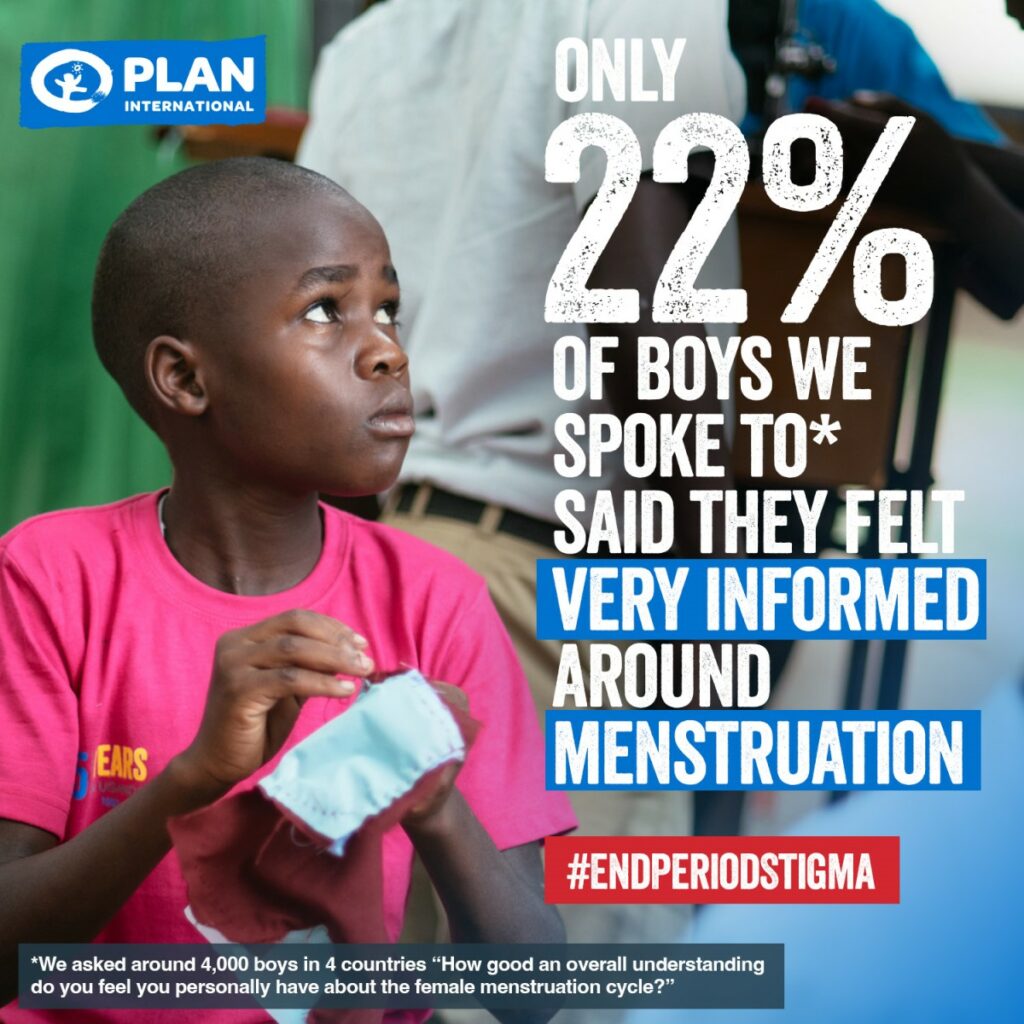One in three boys think menstruation should be kept secret as new survey shows ‘deep-rooted’ taboos around periods.
More than one in three boys (37%) think periods should be kept a secret, according to research by Plan International.
In a survey of 4,127 boys and young men from four countries – Brazil, Indonesia, the Netherlands and Uganda – the most common reason cited for avoiding the topic was that menstruation is a ‘private matter’ for girls and women.
The respondents, aged between 15 to 24, also admitted they frequently associate periods with words such as ‘dirty’ (55%), ’embarrassing’ (31%) and ‘disgusting’ (38%).
Plan International, a leading girls’ rights NGO which works to improve menstrual health around the world, says the results expose deep-rooted taboos around discussing menstruation with far-reaching consequences for girls’ health and wellbeing.
“The stigma which surrounds periods, in high and low-income countries alike, both stems from and worsens gender inequality. It comes partly from a perception of girls as less worthy. And by exposing them to discrimination, much of it based on myths and poor education, over time these misconceptions can seriously erode girls’ confidence and limit their life opportunities,” says Alexandra Parnebjork, sexual and reproductive health adviser for Plan International.
“It means, for example, that girls are excluded from everyday activities, from attending school to eating with their families. The culture of silence around periods also means that quality menstrual products like pads are often not prioritised as household expenditure, especially when money is tight, forcing girls to use unhygienic and potentially risky alternatives.”
Seven in 10 boys said (70%) they have seen another boy or man make a negative or nasty comment about periods. In the Netherlands, one in four say those comments came from a male teacher.

Buying sanitary napkins or walking to the toilet with sanitary products is also embarrassing, according to 29% and 41% of boys and men respectively.
In Indonesia, more than half (58%) of those surveyed do not think girls and women can go to school or work while menstruating, or visit a place of worship (73%). In Uganda, more than half (55%) of respondents said they do not think it is acceptable for a girl to remain unmarried after her first period.
Only one in five boys (22%) say they are very informed about periods and menstrual health, while almost a quarter (23%) say they are either not that informed or not informed at all.
However, the survey also found that boys want to learn more about menstrual health, with 92% agreeing that periods should be normalised.
Nearly three-quarters said the best way to achieve this was through better education at school (72%), followed by conversations at home with both parents (69%) and through the media (64%).
More than two-thirds (67%) also said they had stood up to someone in their community following a nasty comment about menstruation.
“This study shows that deep-rooted taboos around menstruation persist around the world. But more positively, we found that many boys and young men want to play their part in breaking down this stigma,” Parnebjork continued.
“That’s why education – including comprehensive sexuality education – is so critical and should start early. Periods are natural, not shameful. Educating children of all genders, including boys, about periods and other sexual and reproductive health and rights issues can have a positive impact on ending period shame and stigma, and normalizing periods from a young age”
The study was conducted in the run-up to Menstrual Hygiene Day on May 28, a day dedicated to breaking taboos and stigma around menstruation.